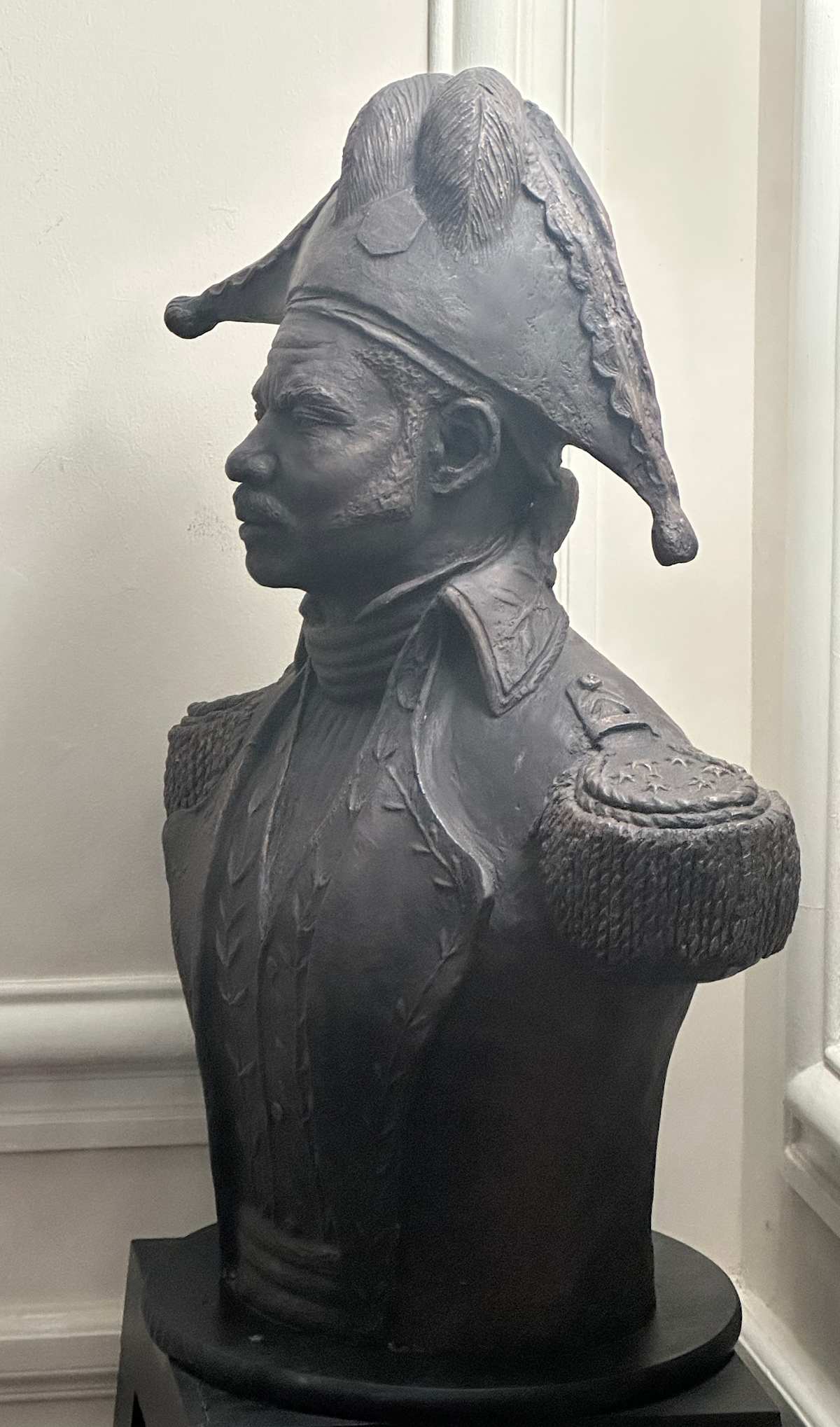By Marlene L. Daut
On September 20, 1758, Dessalines is thought to have been born to an enslaved mother in Grande-Rivière-du-Nord in the French colony of Saint-Domingue (today Haiti).
After being tortured by his enslavers for thirty-three years, Dessalines participated in the Revolution (1791-1803) that brought slavery in the colony to a standstill. Eventually joining the famous revolutionary and formerly enslaved Toussaint Louverture, together, they and the other revolutionaries, forced France to officially abolish slavery. As free men, Dessalines and Louverture then rose through the ranks to become generals in the French military, at war, by turns, with Spain and Great Britain.
But after Napoléon Bonaparte overthrew the French government to become First Consul of France, he made it his mission to reinstate slavery. He sent his brother-in-law to the island for that purpose with 60,000 French troops, and he instructed them to get rid of Louverture, Dessalines, and the other revolutionary leaders. The French subsequently arrested and deported Louverture in June 1802, but the revolutionaries persisted.
As the revolution continued, Dessalines successfully unified the Black population to create the armée indigène or indigenous army, who changed their motto from “Liberty or Death!” to “Independence or Death!” The Indigenous Army definitively defeated French troops at the Battle of Vertières on November 18, 1803.
Yet Haiti’s war with France was hardly over. In the speech he gave to accompany the unveiling of the January 1, 1804 declaration of Haitian independence, Dessalines warned of the danger Haitians still faced: “Everything here calls forth the memory of the cruelties of that barbaric people; our laws, our mores, our cities, everything still carries the imprint of the French.” “What am I saying?” he exclaimed. “There are still Frenchmen on this island, and you believe yourselves to be free of this Republic that has made war against every nation….” He then bleakly reminded the Haitian people of all they lost in their thirteen-year struggle for freedom: “your wives, your husbands, your brothers, your sisters…your children, your suckling babes.”
Dessalines further announced to the universe that Haitians had created a fully independent state, separate from French authority. Just as important to him was getting the world to acknowledge the ongoing state of war between Haiti and France. In his later April 28th proclamation, Dessalines described how the same Frenchmen who once enslaved the Haitian people were vying to “restore Saint-Domingue,” a euphemism for the reinstatement of French slavery (which Bonaparte succeeded in authorizing elsewhere in France’s overseas colonies). Haitians had no choice, Dessalines insisted, but to continue to engage in self-defense.
Dessalines’s reign was short-lived, however. A rival faction wanted his power and assassinated him on October 17, 1806. Seeming to foresee the possibility that his life might be cut short, Dessalines had expressed fear in the April proclamation that his successors might one day give in to the French and compromise Haitian sovereignty. He warned his compatriots, “If other leaders, after me, dig their own graves and those of their fellow men, by adopting a conduct diametrically opposed to mine, you will have only to accuse the inevitable law of fate that will have prevented me from ensuring the happiness and salvation of my fellow citizens; but may my successors follow the path that I will trace for them! …it is the most worthy homage they can pay to my memory.”
Dessalines’s warning went unheeded. In 1825, the French coerced Haiti’s President Jean-Pierre Boyer into a disastrous indemnity, whereby Haiti would owe the French 150 million francs as the price of Haitian liberty.
Today’s world can still learn from Dessalines’s unwavering commitment to Haitian freedom and independence. In the final words of his memoir of the Revolution, Dessalines’s secretary Adjutant-General Louis-Félix Boisrond-Tonnerre explained the lesson Haitians, and all the oppressed, should draw from Dessalines’s life. “Haitians,” he called out, “whom the bravery of a true hero has lifted out of the anathema of prejudice, in reading this history, you will be able to see with your own eyes the abyss from which he has rescued you. And you, slaves of all countries, you will learn from this great man, that every person naturally carries liberty in his heart, and the keys to that liberty are in his own hands.” These words still ring true.
To cite this article: Marlene L. Daut, “OTD in Haitian History: Birth of Jean-Jacques Dessalines,” King of Haiti’s World Blog, September 20, 2025 <https://marlenedaut.com/blog/otd-in-haitian-history-september-20-1758-birth-of-jean-jacques>
*Originally published in Essence magazine on October 17, 2023
